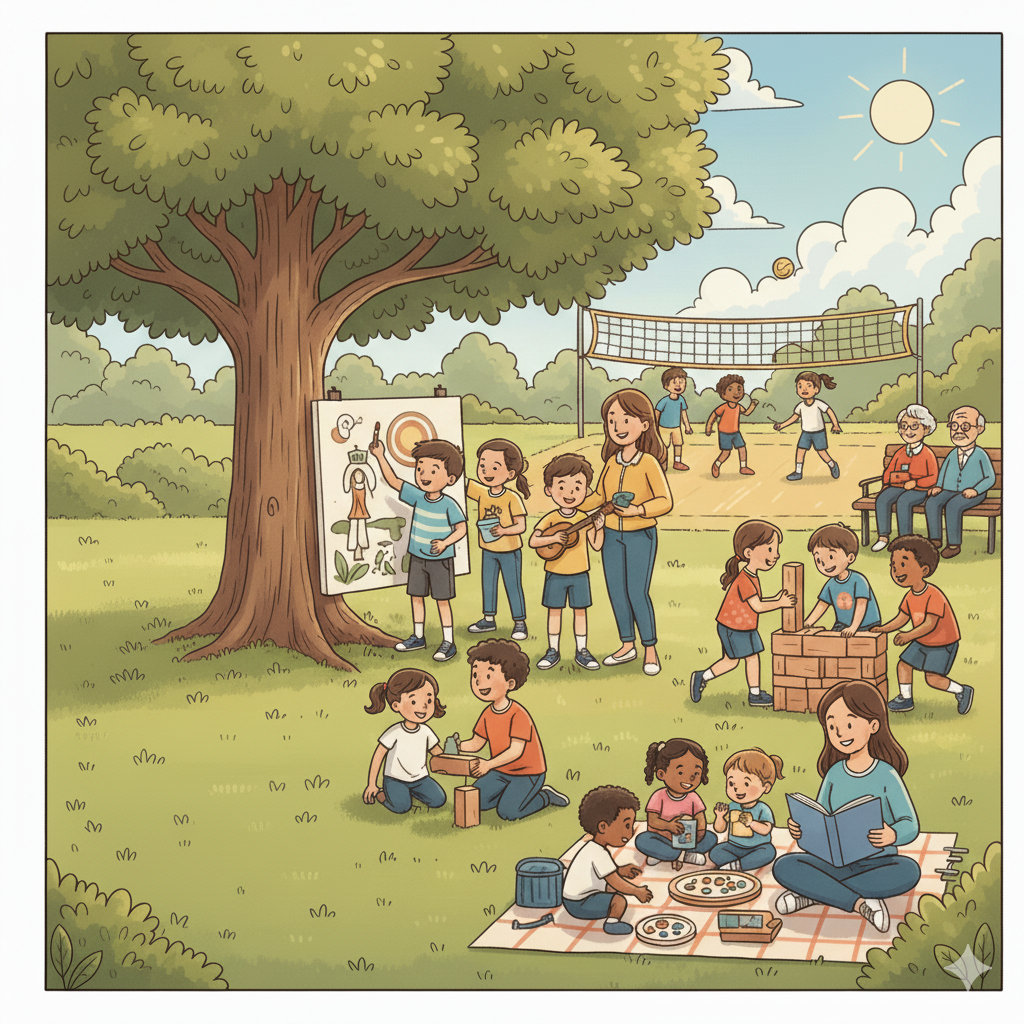
Homeschoolers and those considering it are often bombarded with direct questions about socialising as well as indirect hints that home schooled children aren’t socially aware.
Also the ability to make friends is often a concern for homeschooling parents.
I’m writing this to explain a bit more about what socialising is, why mainstream school can’t be classed as socialising and some other useful information about how children develop and the best forms of socialising.
At this point, I would also like to recommend a very good book:
“Free to Learn’ by Peter Gray
The book covers a lot more about socialising and is a great resource for anyone considering homeschooling or anyone who has any concerns and is questioning the current mainstream schooling system.

Why Mainstream Schooling Is Not the Best Way to Socialize Your Child—and How Homeschooling Can Offer Better Socialization
Socialization is often cited as one of the key benefits of mainstream schooling.
The idea is that children will naturally develop social skills through regular interaction with their peers in structured settings like classrooms, recess, and extracurricular activities. However, many parents and educators are questioning this assumption, suggesting that mainstream schooling might not always be the best environment for fostering healthy social skills.
Homeschooling offers opportunities for more meaningful and diverse socialisation that is tailored to the individual needs of each child.
Let’s look at what socialising actually is by starting with some definitions:
Oxford Languages: “Mixing socially with others.”
Cambridge Dictionary: “To spend time with other people in order to enjoy yourself.”
Merriam-Webster: “To interact with others in a friendly or sociable manner.”
Collins English Dictionary: Socializing is “the activity of spending time with other people for pleasure.”
Macmillan Dictionary: Socializing means “talking to and doing things with other people in a friendly way.”
Peter Gray, a developmental psychologist and author, provides an insightful perspective on socializing through the lens of play.
He emphasizes that play is a fundamental way through which humans, especially children, develop social and intellectual skills. For Gray, genuine social interaction often involves unstructured, self-directed activities where individuals learn cooperation, conflict resolution, and creative thinking in a low-pressure environment.
Socializing is simply spending time with other people, talking, sharing, and building relationships. It’s how we connect with friends, family, or new people through conversation and activities. It can happen in person, online, or even through phone calls.
Generally speaking, it seems fair to say that in order to class an activity as socialising, it needs to include some aspects:
1 – enjoyment
2 – unstructured/minimally structered activities
3 – interaction and communication with other people
If you consider the typical classroom setting, the activities in a lesson are all structured, not all students enjoy the particular activities and actual interaction with other students is often limited or closely regulated.
Whilst there are some aspects and times of the school day that can be classed as socialising, it certainly isn’t 6 hours per day of socialising.
The Limitations of Mainstream Schooling for Socialization
- Age-Segregated Environments
Mainstream schools typically group children by age, limiting opportunities to engage with individuals from different generations. In the real world, we interact with people of various ages, backgrounds, and experiences.
Children confined to same-age groups miss out on learning essential interpersonal skills that are better developed in mixed-age settings, such as empathy and adaptability.
Peer Pressure and Conformity
Schools can be breeding grounds for peer pressure and conformity. Children often feel compelled to fit in, sometimes at the expense of their individuality or well-being.
This environment can lead to bullying, exclusion, or unhealthy competition, which may hinder authentic social growth. For many children, this pressure damages their confidence, making it difficult to establish genuine and supportive relationships.
This damage/trauma from bullying can have mild to horrific effects in young children. They also carry it with them into adulthood.
2.Superficial Interactions
Socializing at school often revolves around brief and surface-level interactions, such as chatting during recess or working in assigned groups. These scenarios do not always foster deep connections or teach conflict resolution.
Students are limited by school rules and schedules, leaving little room for organic, meaningful interactions.
Overcrowded Classrooms
In many schools, large class sizes mean teachers have limited capacity to mediate conflicts or teach social skills effectively. Children are left to navigate complex social dynamics on their own, which can sometimes lead to negative experiences like bullying, or social anxiety.
In school, most students are taught to compete instead of collobarate which is not a good socialising or life skill.
We can see the effects of this selfish mindset in the wider community.
As a parent, socialising should be a concern for you, even if you send your child to mainstream school.
How Homeschooling Promotes Better Socialization
1.Mixed-Age and Diverse Interactions
Homeschooling provides opportunities for children to interact with people of all ages, from younger siblings and older relatives to adults in the community. These varied interactions mirror real-world scenarios, teaching children how to communicate effectively with people of different ages and backgrounds.
2.Freedom from Peer Pressure
In a homeschooling environment, children are less exposed to the pressures of fitting in with a specific group. This allows them to explore their interests and develop their personalities without fear of judgment. Instead of being forced into social settings, homeschooled children can form connections organically, often based on shared interests and values.
3.Tailored Social Experiences
Homeschooling parents have the flexibility to design social opportunities that suit their child’s needs. From co-op groups and extracurricular activities to volunteering and community events, children can engage in diverse settings where they meet like-minded people. These activities promote genuine friendships and encourage children to practice collaboration, leadership, and empathy.
4.Family Bonding as a Foundation for Social Skills
Homeschooling fosters close family relationships, as children spend more time with parents and siblings. These relationships create a safe environment where children can learn and practice healthy social behaviors, such as problem-solving, active listening, and mutual respect. These skills often translate into positive interactions outside the home.
5.Real-World Learning
Homeschooling provides the flexibility to integrate real-world experiences into education. From museum trips to volunteering and even running small businesses, children learn how to navigate social scenarios in authentic settings. This hands-on approach helps them develop confidence and adaptability—skills that are invaluable for success in life.
Addressing Common Misconceptions About Homeschooling and Socialization
A common myth is that homeschooled children are “isolated” or lack social skills. In reality, research has shown that homeschooled children are often more socially mature and better able to engage in meaningful relationships. With access to extracurricular activities, sports teams, and homeschooling networks, homeschooled children typically have ample opportunities to socialise in diverse and supportive environments.
Conclusion
While traditional schools offer some opportunities for socialization, they also present challenges like age segregation, peer pressure, and limited flexibility. Homeschooling, on the other hand, allows parents to create intentional, meaningful social experiences that better prepare children for the complexities of real-world interactions. By focusing on diverse and authentic socialization opportunities, homeschooling empowers children to develop the confidence and interpersonal skills they need to thrive.
Socialising starts with you as a parent with your child. The more you interact and play with your child, the more social skills your child will learn.
Here are some examples:
Greeting your child in the mornings
Playing games with your child
Sharing jokes and humorous moments
Guiding your child when they make a mistake or do something that wouldn’t be socially acceptable (like picking their nose!)
Socialising with other children:
All children start to socialise with other children at different ages.
Some are ready from the get-go and want to be around other babies and children as much as possible.
Some are completely opposite and only feel safe around mama for a long time.
This is all normal – we all vary as adults too – the best way to help your child socialise is to take cues from them, try things and see what they enjoy and what kind of socialising they are most comfortable with.
Don’t force your child to socialise, there are no milestones to meet.
If your child wants to watch from the sidelines, that is perfectly ok.
They will get there in their own time.

Comments